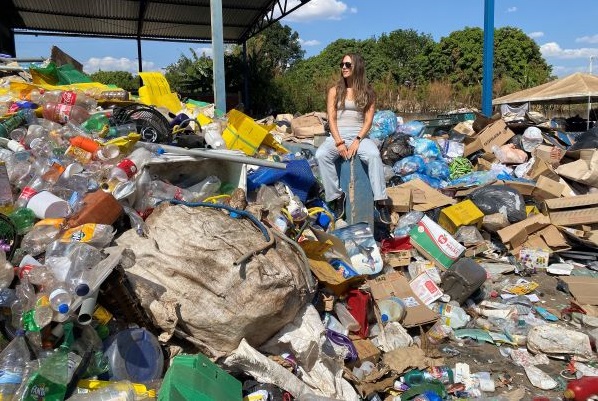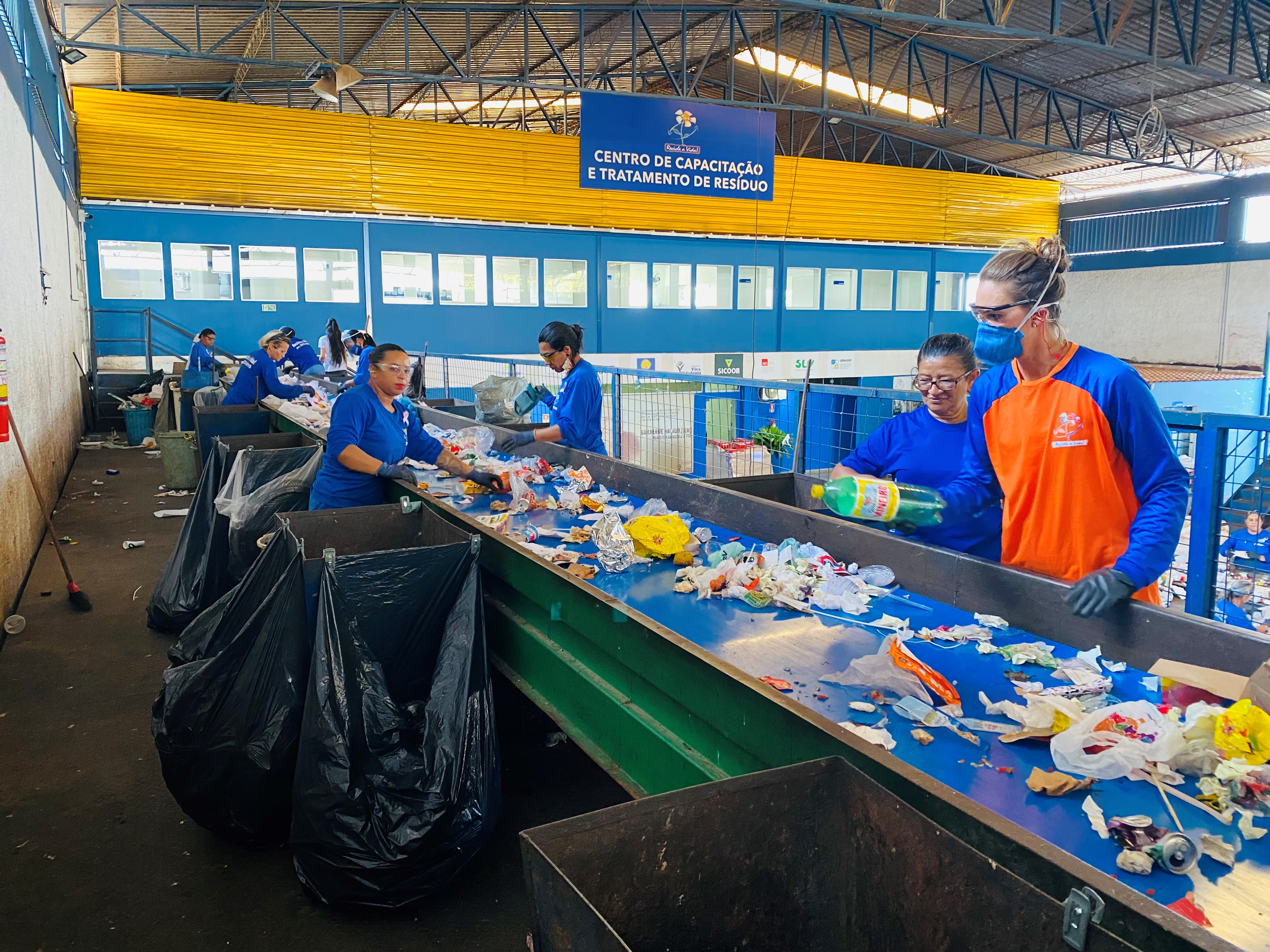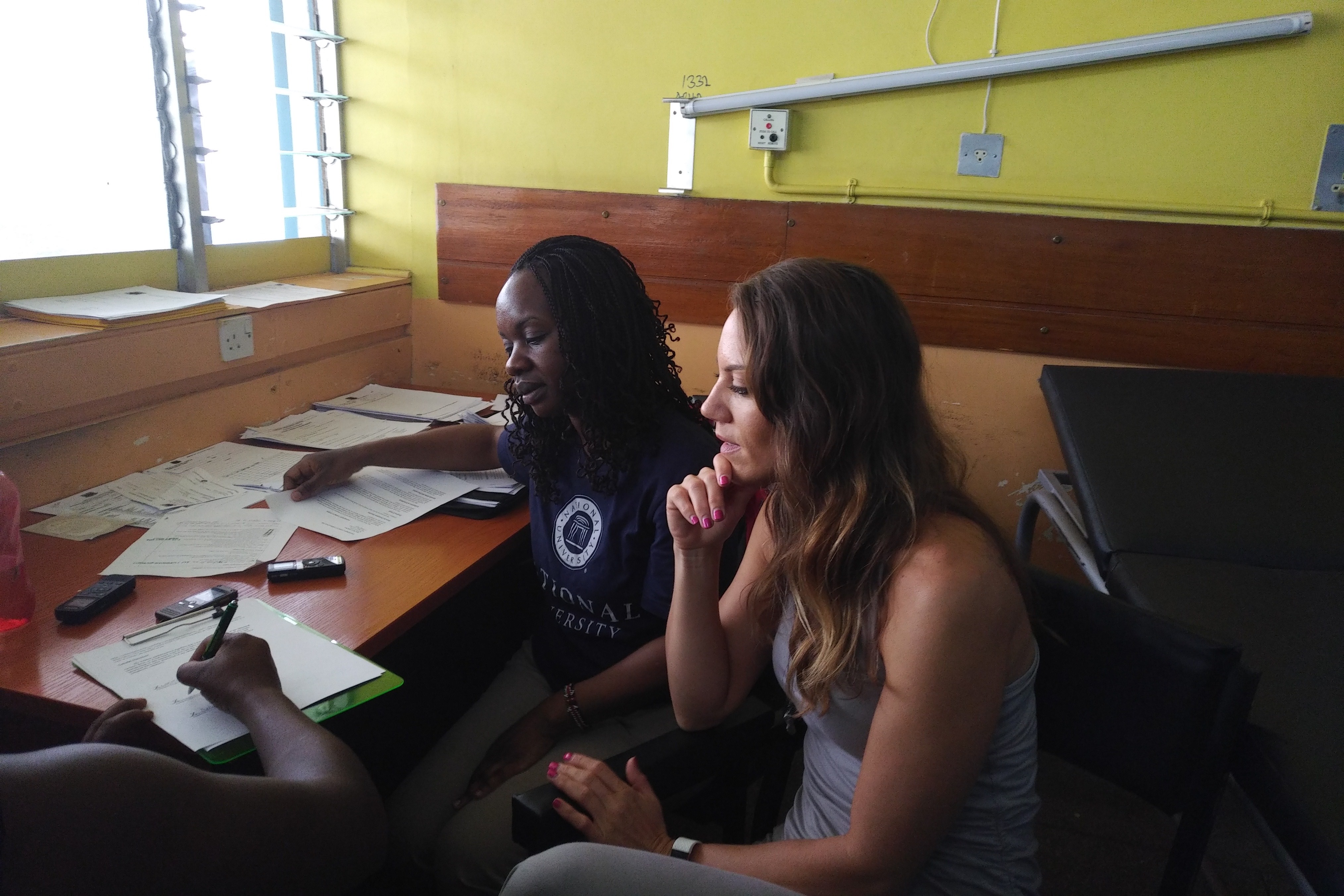IMPACTING GLOBAL HEALTH

An estimated 20 million people die by preventable deaths each year worldwide, though primarily in low- and middle-income countries, and an Oredigger has worked her way onto the front lines of researching and implementing ways to help reduce those numbers.
Tara Rava Zolnikov, Ph.D., M.S., M.S., M.S(c) (Biological Sciences ’04, Industrial Hygiene ’07) initially wanted to go into forensics when she chose Biological Sciences as her major.

“I chose Montana Tech as I received a full academic and athletic scholarship to play volleyball,” Zolnikov said. “After my first graduation, I went on an exploration of the world. I moved to Mexico to learn Spanish. After that, I moved to Greece, where I modeled and learned Greek. While living in Greece, I had a moment where I realized my life was not necessarily being fulfilled and that I wanted to have a greater positive role in people’s lives, so I decided to return to Montana Tech and get my M.S. degree in Industrial Hygiene. At the time, I didn’t even know what it was, but safety seemed like an important choice and an aspect of work that all people should have access to.”
Zolnikov worked as an environmental risk scientist for a year, but she still wanted to help people on a larger scale.

“I applied and got into Harvard to study environmental health,” Zolnikov said. “I began and finished my M.S. degree and then went into the doctorate program there. Throughout my time at Harvard, I lived and worked in India and Kenya and traveled worldwide. During these moments, I finally found myself and an innate desire to help people but realized that Harvard didn’t necessarily lay out the right path for me, so I left the doctorate program and transferred into the Developmental Science Ph.D. program at North Dakota State University. This program allowed me to pair elements of psychology and culture into a global health setting.”
Zolnikov said her growth in the field of global health emerged over time.
“This happened throughout my life, while I was living, traveling, and experiencing life with people around the world,” Zolnikov said. “Through these moments, I lived in mud huts, didn’t have access to water or electricity, cooked over a fire, had no money, walked miles on dirt roads to the nearest town, took buses for hours across countries—and saw how most people of low socioeconomic status lived their daily lives. I discovered that I loved these times and the people next to me during these challenging experiences. I decided to make it my life’s goal to try to raise the status of health and well-being for these amazing people in the world, and that’s how I became a professor of global health and have published on so many issues. When you believe and have passion for what you do, the path becomes clear on what your mission in life needs to be: ensure that it’s rooted in goodness, because goals like money will never bring you happiness.”
Zolnikov has conducted research on a breadth of issues worldwide and published more than 100 peer-reviewed studies in some of the world’s leading journals, including The Lancet Oncology, American Journal of Public Health, AIDS and Behavior, Waste Management, Science of the Total Environment, and other high-impact-factor journals. She’s had three books published by Palgrave, MacMillan, and Springer. She proposed and is now editor of Elsevier’s Dialogues in Health, a journal created to support qualitative research in health. Zolnikov is a full rank professor at the National University in the Healthcare Leadership Department. She works as a consultant with the World Health Organization, and has also received grants from that organization. Her nonprofit, Water 2 Schools, seeks to get children access to water in Kenyan schools.
Zolnikov’s work takes her into some of the most impoverished places on the planet. Photos show her on a waste picking line in Brazil, working on a project funded by a World Health Organization grant. Waste picking is a common practice in developing countries, where impoverished individuals pick through piles of open air
garbage to find something of value that is salvageable to exchange for money. In Brazil, a conveyor belt system had been assembled to take those workers off the streets. While the intervention of the conveyor belt may have helped in some ways, Zolnikov and her fellow researchers are concerned that the waste pickers are still being exposed to vector-borne diseases and ergonomic, and negative social risks.
Zolnikov says exposure to people living in conditions like these challenged her view of the world.
“There was a difficult part of my life where I did not like people in high socioeconomic societies who were chock
full of available opportunities,” Zolnikov said. “This anger was because of my international relationships and
experiences, as I was living and working alongside people who had nothing per our societal expectations. After
years, I realized they were richer than us in so many ways. My vision changed and I am now at peace, knowing that people experience joy and are suffering differently, and I no longer invalidate the origin of these moments in life and subsequent challenges faced by all people throughout the world.”
Zolnikov said her time in Montana and at Montana Tech helped give perspective to her work.
“Me and most of my colleagues and friends—and even professors—at Montana Tech are from humble
beginnings,” Zolnikov said. “We were and are Montana kids, who lived through elements of poverty, escaped through sports, and experienced outcomes related to inclement and challenging weather. We are tough, and it takes a strong person to live in the poor countries and areas, as I have. While I was doing the research, I knew the people from back home or at Tech were standing in solidarity with me. We may not know exactly what the Kenyans feel when they don’t have access to water, but we can imagine it when our pipes freeze in the winter, or how it feels to travel hours to get a hospital, not to have health insurance, to work jobs that barely pay the bills, to be exposed to diseases/disorders and treat them with household items, and to find life and purpose through our neighbors. We may be worlds apart, but we are brothers in arms when you boil it down.”
Zolnikov said students interested in public health should be ready to face failure.
“I get rejected almost every day of my life, from grants, papers, ideas, etc.,” Zolnikov said. “Going against the grain and fighting for something that you know needs to change, like inequities in the world, is not easy. There is no easy way to solve difficult problems like these, but be strong. I have always believed that my research, knowledge, or ideas could create a ripple effect and do something positive somewhere. Standing tall in the face of constant rejection is difficult, but it makes you and your ideas valid. Join the fight—we need you.”
Zolnikov had some final advice on how to truly succeed.
“Find the beauty in the people and things around you,” Zolnikov said “Enjoy your successes fully, as there are so
many failures and challenges in life. Give more than you take. Everyone has a story, so be kind to everyone you meet, because it might go farther and be more needed than you think.”